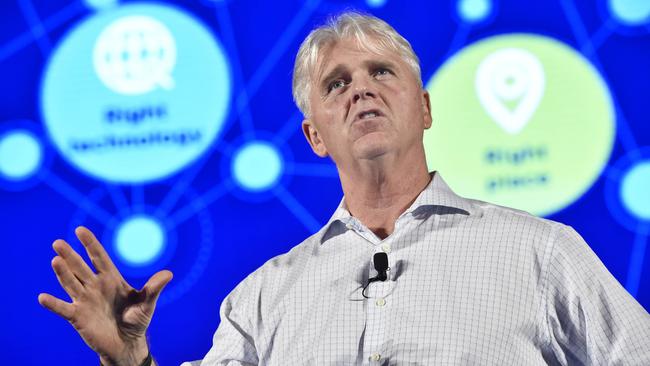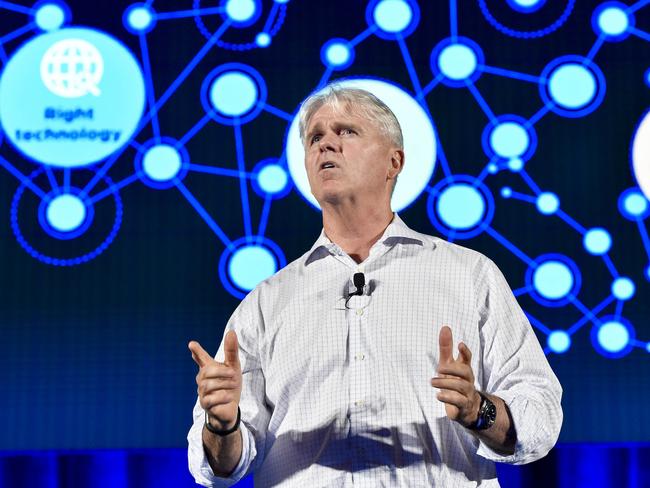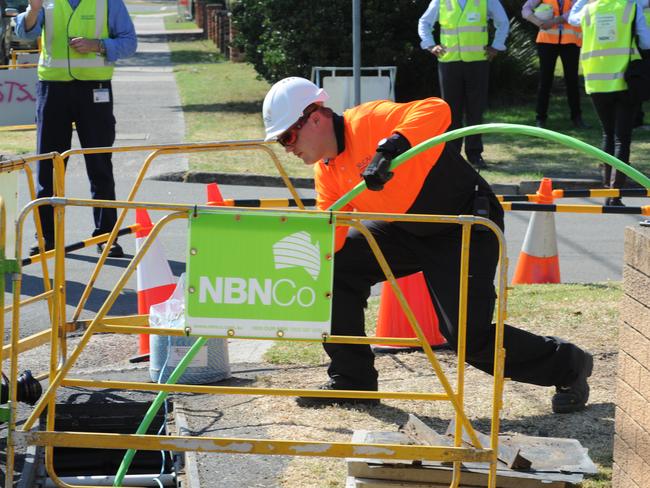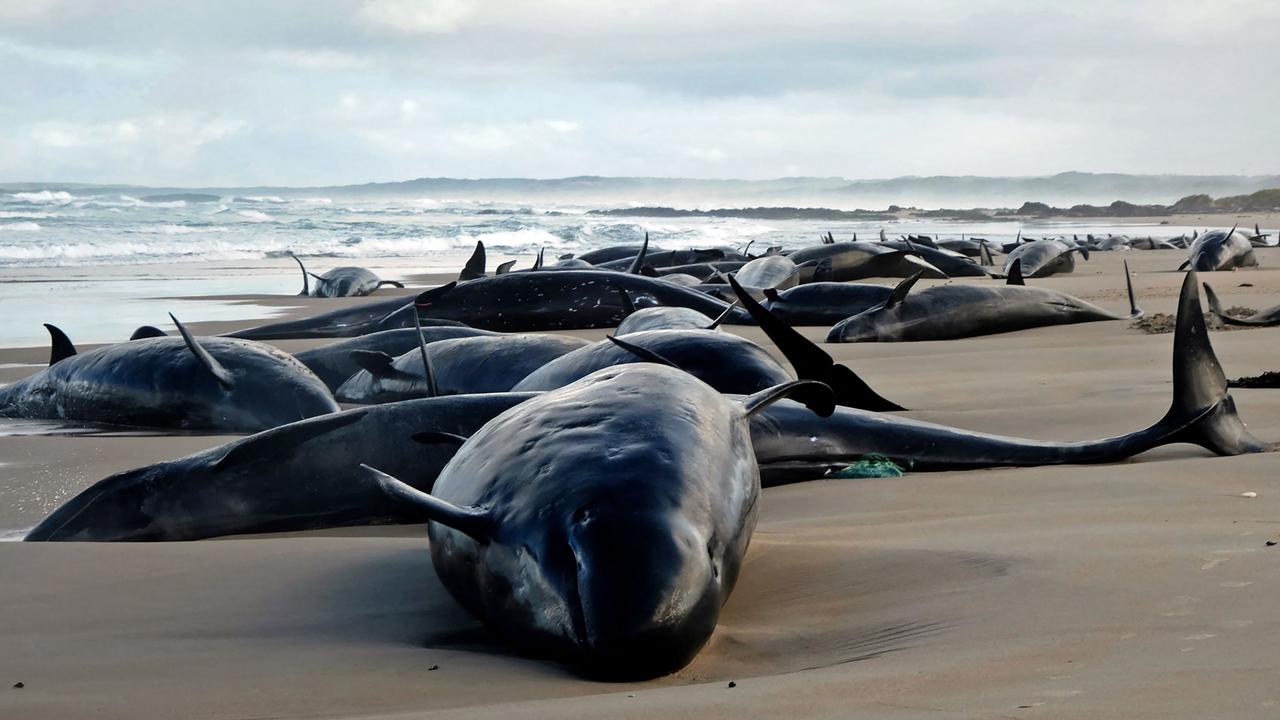NBN CEO says Australians cannot use super-fast broadband speeds
THE boss of the $49 billion National Broadband Network claims Australians do not need super-fast broadband and wouldn’t use it even if it was free.

Technology
Don't miss out on the headlines from Technology. Followed categories will be added to My News.
AUSTRALIA, you’ll just have to wait.
The head of the National Broadband Network has sensationally claimed Australians do not want super-fast broadband and would not use it “even if we offered it for free”.
NBN Co chief executive Bill Morrow made the comments at the company’s half-yearly results on Thursday, revealing the network now boasted 1.6 million subscribers although none were able to access its top download speeds.
Mr Morrow’s remarks came despite an almost 100 per cent spike in Telecommunications Industry Ombudsman complaints about the NBN last financial year, many of them about slow download speeds delivered over the $49 billion network.
Internet Australia chief executive Laurie Patton said the lack of high-speed broadband connections had seen Australia dragged further behind the rest of the world in technology, and labelled Mr Morrow’s remarks “the greatest spin since people invented washing machines”.

Despite promising download speeds of up to one gigabit per second on the NBN since 2013, Mr Morrow confirmed no NBN provider currently offered the high-speed plans to consumers or businesses.
RELATED: Telstra mobile gadge to deliver downloads 10 times faster than the NBN
The speed would be enough to download a high-definition film in under three minutes, or an hour of television in just 16 seconds.
But Mr Morrow said there wasn’t “that big of a demand out there” for it, and overseas providers which offered the same high-speed downloads found consumers weren’t making the most of it.
“Even if we offered it for free, we see the evidence around the world that they wouldn’t use it anyway,” Mr Morrow said.
“We know there are things on the horizon that are going to increase the need for further demand.
“Whether you think about (augmented reality) or (artificial intelligence) or any of these other elements with media streaming at 4K and 8K and immersive sound; all of these things could drive up consumer need but we haven’t seen that as of yet.”
Mr Morrow said two NBN retail service providers did “trial” super-fast broadband speeds but chose not to offer it to the 1.5 million households with fibre connections.
Up to 3.2 million more homes would be able to access super-fast speeds from next year, if it was offered, though it would cost significantly more to access than the current top speed plans of 100 megabits per second.
Mr Patton said the failure to deliver super-fast internet plans to any household was a major oversight and would ultimately short-change Australian innovation.
“It’s not about what we need this year, or next year, it’s about the future,” Mr Patton said.

“It’s about our ability to compete in a digitally enabled world where other countries have high-speed broadband networks that already leave us behind.”
Over the past three years, Australia has fallen from 30th position to 57th place in the world for average peak internet speeds, beaten by countries including New Zealand, Thailand, and Indonesia.
Mr Patton said the NBN’s “flawed” pricing model only made it attractive for internet providers to offer slow speeds, and the network needed to use superior technology, like fibre-to-the-home connections, to deliver a fast, future-proof network to the majority of Australian homes.
“This is massive spin,” he said.
“Morrow is trying to justify the fact that he’s building an inferior network that’s not capable of delivering fast speeds.”
NBN Co also revealed it had now connected 3.8 million premises to the network, and posted $403 million in revenue in the last half of 2016.


